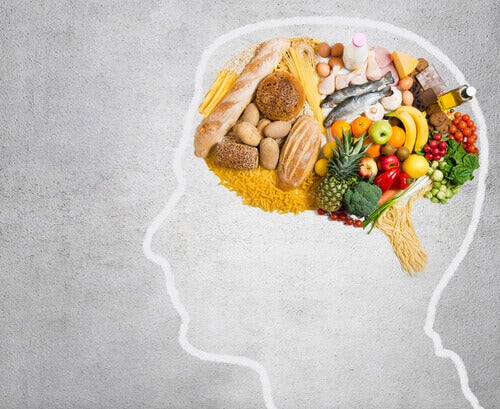How important is food to the brain? The greatest link between our body and food is not in the digestive system, but in the brain, the impact of our diet directly affects you. On the one hand, he is responsible for hunger, satiety and a desire to eat, and on the other hand, he gets his energy from food.
For the brain to work perfectly it is necessary to feed it properly, so, depending on what we eat, there will be a number of metabolic processes that will turn these nutrients into the fuel that our mind needs.
- The brain doesn’t rest.
- It is continuously active and functional.
- Even when we are not aware of it.
- Hence the importance of its nutrition.
- Because the only way to give energy to our brain is by consuming different and varied foods.
Of all, carbohydrates are the nutritional variety that allows you to perform your activity more efficiently and, among the varieties of carbohydrates, sugar or sucrose, this is the one that guarantees optimal brain function.
Sugar is water soluble and easily digestible by the body, chemically it is a disaccharid made up of two molecules: one glucose and one fructose, so both are generally considered the two main types of sugar.
However, glucose and fructose have antagonistic effects on our brains, while the first activates the satiety signal, fructose performs the opposite task, activating the brain pathways that increase our interest in food, one calm and the other stimulates the desire to continue eating Curious, does it?
But between the two types of sugar, the body has a favorite: glucose. This is our body’s favorite cell menu and the main source of brain energy. This sugar is essential.
Indeed, although the weight of this organ accounts for only 2% of total body weight, it requires almost one-fifth of the glucose circulating in the capillaries and also requires 10 times more blood than muscle tissue. muscles and other organs, the brain cannot store glucose for later use.
In addition, it has the drawback that your cells are not able to convert fats or proteins into glucose, so you can only use what comes from the external daily sugar intake we do every day.
Perhaps now we are more aware that eating is a decision that affects us beyond good digestion. Some high-glucose foods include vegetables (carrots, beetroots), dairy, cereals (corn, wheat grits, brown rice) or white bread.
But keep an eye out, because the fact that this monosaccha arid allows the brain to function properly doesn’t mean we should be fed up with cakes, processed foods or ‘shit’, remember that sugar is naturally present in the meals we eat every day and that this amount is enough for us.
Glucose levels that are too high or too low prevent your body from functioning normally. If your blood concentration is low, as in very restrictive diets, it can weaken memory, concentration or learning. If it’s excessive, chronic diseases, such as epilepsy, can occur.
Starch is another type of complex carbohydrate composed of glucose molecules and is very useful for the proper functioning of the brain, so it is essential that in our diet we also find foods such as potatoes, rice or pasta.
Proteins are essential for the production of neurotransmitters (responsible for the flow of information between the brain and the rest of the body), for example, the contents in blue fish (tuna, sardines or salmon), meat or eggs.
Oilseeds promote blood circulation and oxygen to all parts of the body. In addition, nuts, almonds or raisins play an antioxidant and anti-inflammatory function due to the high content of omega-3 fatty acids and vitamins and minerals.
When we eat, the enzymes in our digestive system are responsible for the breakdown of food into different parts: carbohydrates are divided into simple sugars, proteins are divided into amino acids and fats into fatty acids.
These compounds travel through the bloodstream to the different cells that make up the human body; some, such as glucose, go directly to the blood vessels of the brain; others, such as fatty acids, are structural elements of cell membranes.
No breakfast guarantees a reduction in the nutritional intake of the brain and impairs its functioning early in the morning. Similarly, consuming too many sugars at once also affects their potential.
Lack of physical exercise, lack of sleep, smoking or consumption of alcohol and other substances can even alter the structure of the brain due to its serious effects on the central nervous system. Lack of friendship, violent reactions and stress also decrease mental capacity.
A person does not become more or less intelligent through their diet, but it does influence the performance and efficiency of mental processes that occur on a daily basis. We have already seen that, although glucose is the basis, the best way to ensure that our brain is fully nourished is to maintain a healthy and balanced diet.
By making small changes to the diet, we can achieve amazing results in common tasks, such as calculations, reasoning or memory. Why not try?

